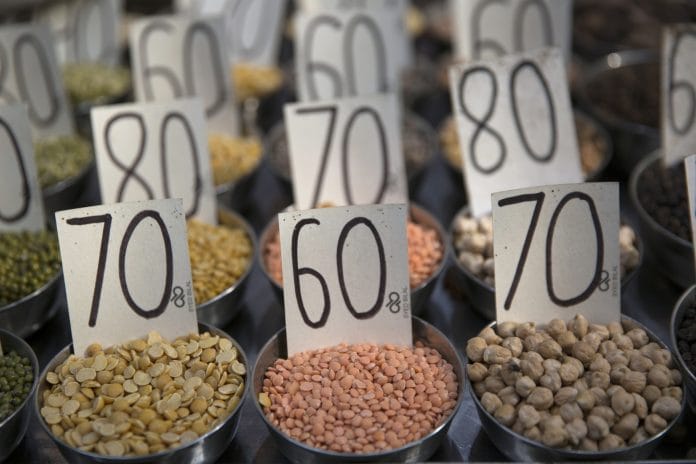
Thank you dear subscribers, we are overwhelmed with your response.
Your Turn is a unique section from ThePrint featuring points of view from its subscribers. If you are a subscriber, have a point of view, please send it to us. If not, do subscribe here: https://theprint.in/subscribe/
Right to Food – Fundamental Right or Entitlement?
India’s Supreme Court observed in its judgment delivered on Tuesday, 29thJune 2021, that the fundamental right to life enshrined in Article 21 of the Constitution of India may be interpreted to include right to live with human dignity, which may include the right to food and other basic necessities. The purpose of this hearing was to adjudicate on ‘One Nation One Ration Card’, but it opens up many questions regarding what constitutes ‘rights’.
Rights are about freedoms – the privileges that all citizens can enjoy at the same time in the same way, without infringing on similar freedoms of any fellow citizens. For example, the right to life, property and free expression can be exercised by all citizens simultaneously at no cost to anybody else. Here, state capacity is needed only for ‘exception handling’, so as the prevent a handful of deviants from transgressing these rights and punish them in case of such transgressions.
Let us examine the so-called ‘right to food’ in this light. Food for human consumption does not come readily from nature – it needs land, labor (farming, cultivation) and capital (seeds, fertilizers, water and animals). It follows that the state must necessarily infringe upon somebody’s property right (which is actually a true right), in order to fulfil this obligation. Moreover, only food is not enough to sustain life in the modern world; you need a lot more – clothing, housing, healthcare, education, transportation – the list is endless. The state, then must build unlimited capacity to provide these synthetic ‘rights’ to everybody and they must necessary come at the cost of genuine rights of other citizens by way of direct or indirect taxes (or indeed, by way of the stealth tax of inflation) recovered on the pain of punishment, which entails the use of state violence. It is a moral hazard and contradicts the principle of liberty.
Therefore, it is essential to draw a line between genuine rights and entitlements. These are also termed by philosophers are negative and positive rights. A positive right obliges others to provide benefits, while a negative right only obliges others to avoid interfering with someone’s liberty. Food, education, and healthcare are all important but are positive rights or ‘entitlements’ and therefore, not fundamental rights. It is for the individual to obtain these benefits for self and family through peaceful and voluntary exchange with other members of the society, with the state playing the primary role of protector of fundamental rights from internal and external forces, enforcer of the rule of law and adjudicator on disputes. A secondary function of the state is provision of public goods – those products and services that are non-rival and non-excludable (for clarity, non-rival means consumption of one unit by one person does not decrease available units for consumption by another person and non-excludable means a potential consumer cannot be excluded from consumption. Street lighting would be simple example) and therefore cannot be provided by the market. Of course, the state must draw its resources from the society for these legitimate functions in the form of taxes, which is an unavoidable paradox – sacrifice of some fundamental rights to property in return for protection of majority of rights and proper functioning of the society.
The rulers see political mileage in deploying state resources to provide private goods (free food, public hospitals, public schools, free electricity, free cooking gas and now even toilets, not to mention government-guaranteed loans and other forms of credit), but it constitutes not only a moral hazard but also economic distortions due to misaligned incentives and misallocation of scarce resources leading to poor quality, high costs and endless opportunities for rent-seeking. Moreover, it creates a permanent underclass in society in perpetual poverty, forever dependent on state largesse, thereby achieving the exactly opposite of the intended outcome.
It is a tragedy of our times that just when scientific and technological breakthroughs are occurring faster than at any point in history with the potential to raise our living standards by an order of magnitude and eliminate poverty, the field of socio-economic study, administration, judiciary and public policy has been globally dominated by leftists and Keynesian economists – an outcome of decades of leftist invasion in the academia. Every party in power enacts the same welfare policies, indeed trying to outdo each other on this count. The labels Left and Right now apply only on the basis of their position on social issues. There is NO economic Right anymore. The only solution is to appeal directly to the thinking, educated class and mobilize public opinion in support of true rights and civil liberties and against the state’s coercive interference the economy.
Also read: Stray dogs have right to food, no one can restrict others from feeding them, Delhi HC says
These pieces are being published as they have been received – they have not been edited/fact-checked by ThePrint.


COMMENTS